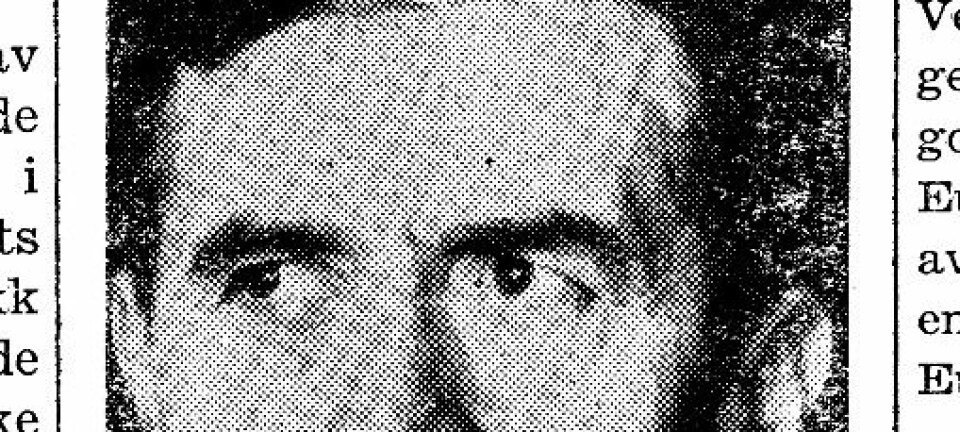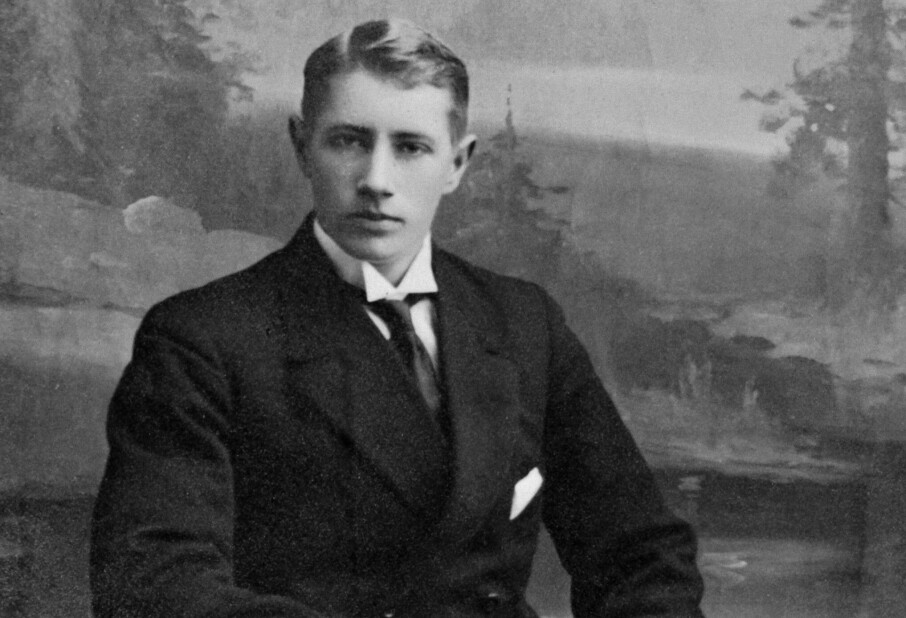
Courts more likely to move against racist and discriminatory speech
The threshold has been lowered for prosecuting and convicting people of hate speech in Norway, according to a Bergen legal scholar.
Denne artikkelen er over ti år gammel og kan inneholde utdatert informasjon.
“There are reasons to believe that a change has come in the Supreme Court’s stance and that hate speech is less protected than it was earlier,” says Bjørnar Borvik, an associate professor in the Law Department of the University of Bergen.
Section 135 a of Norway’s legal statutes, which prohibits public expressions that are hateful or discriminating, has also been changed over the years to allow for tougher enforcement of the ban.
Among the changes has been the addition in 2003 of racist and discriminatory symbols, such as swastikas, to the list of expressions that are prohibited in public.
A Muslim with a fundamentalist bent, Ubaydullah Hussein, is being tried this week ― in part for allegedly breaking Section 135a of the Criminal Code.

Only a handful of individuals have been convicted of breaking this law, since free speech is a primary tenet of Norwegian democracy. Borvik believes that there is less leeway now for hate speech, based in part on recent Norwegian Supreme Court rulings.
Speech, symbols of hate and discrimination
The section states: "Any person who wilfully or through gross negligence publically utters a discriminatory or hateful expression shall be liable to fines or imprisonment for a term not exceeding three years. (…) The use of symbols shall also be deemed to be an expression. Any person who aids and abets such an offence shall be liable to the same penalty.
A discriminatory or hateful expression means here means threatening or insulting anyone, or inciting hatred or persecution of or contempt for anyone because of his or her:
a) skin colour or national or ethnic origin,
b) religion or life stance or,
c) homosexuality, life style or orientation
d) disability."
The law was passed in 1970, as part of Norway’s ratification of the UN International Convention on the Elimination of all forms of Racial Discrimination in 1965.
The Convention encourages UN countries to not just criminalise the incitement of violent activities, but also the spread of ideologies linked to race hatred and racial discrimination.
In this connection, Norway was chastised by the Commission’s complaints committee after the leader of a skinhead group called Bootboys ― Terje Sjølie ― was acquitted of hateful expressions in 2002.
The Sjølie case
Sjølie gave a speech in a public square in the town of Askim on 19 August 2000.
“On a daily basis, immigrants are robbing, raping and killing Norwegians," Dagbladet, a national newspaper based in Olso, reported Sjølie as saying. "Every day our people are being plundered and destroyed by the Jews, who suck our country dry of its wealth and replace it with immorality and non-Norwegian thinking.”
Borvik says Sjølie was acquitted of breaking Section 135a because the Supreme Court ruled that no concrete threats had been made.
“A Supreme Court majority argued therefore that such expressions were not punishable. A minority opined that this message was so abhorrently discriminatory against Jews as to constitute a breach of 135a,” Borvik said.
Borvik says the Norwegian Supreme Court began to interpret the law more strictly beginning with the trial of Tore Tvedt, the head of a Neo-Nazi organisation called Vigrid.
“When Vigrid leader Tore Tvedt was convicted of anti-Semitic rhetoric in 2007, a unanimous Supreme Court ruled that it was sufficiently punishable if anyone stated opinions that were grossly disparaging with regards to the groups protected by Section 135a,” says Borvik.
Borvik thinks the Norwegian Supreme Court may have been swayed by the European Court of Human Rights Court in Strasbourg, where little leeway is given to free speech when it comes to racist remarks. He believes this change has moved Norwegian judges toward a less lenient interpretation of what actually is hate speech.
Freedom of speech and bans on speech
Borvik is one of those who think it is correct to judge people for public expressions of hatred, even though no concrete threats are made. Not everyone agrees with him.
In the US law the freedom of speech is particularly strong and an utterance, however hateful, must be interpreted as a clear threat for it to be punishable.
A feature article in the newspaper Aftenposten by Kristian Tonning Riise, a member of the conservative think-tank Civita, argued for the tolerance of any expressions ― a contribution to a debate on the consequences of banning certain expressions in public.
In the ongoing court case against Ubaydullah Hussain, the newspaper VG reports that a key argument by his attorney, John Christian Elden, is that freedom of speech must also include freedom to say things most people don’t like.
Nine out of ten cases are dismissed
Only a few individuals in Norway have actually been convicted of hateful expressions since Section 135a was added to the Criminal Code in 1970.
“It is significant that the Section is used so little,” says Ronald Craig, senior advisor in the office of the Equality and Anti-Discrimination Ombud.
It is believed that police drop charges in nine out of ten cases where someone is reported for breaking Section 135a, according to the Norwegian encyclopaedic website snl.no.
In 2012, however, the legislation covering hate speech was expanded to include expressions published on public fora on the Internet as punishable.
This was after the Supreme Court decided that the blogger Eivind Berge couldn’t be prosecuted for encouraging the murder of public servants, because this opinion was not published in print.
Ubaydullah Hussain has been indicted for threats against journalists and a researcher ― as well as hateful and discriminatory expressions about Jews in Norway, and against the author Amal Aden for being a lesbian. He has pled “not guilty”. A ruling in his case is expected on Friday, 7 February.
Translated by: Glenn Ostling


































